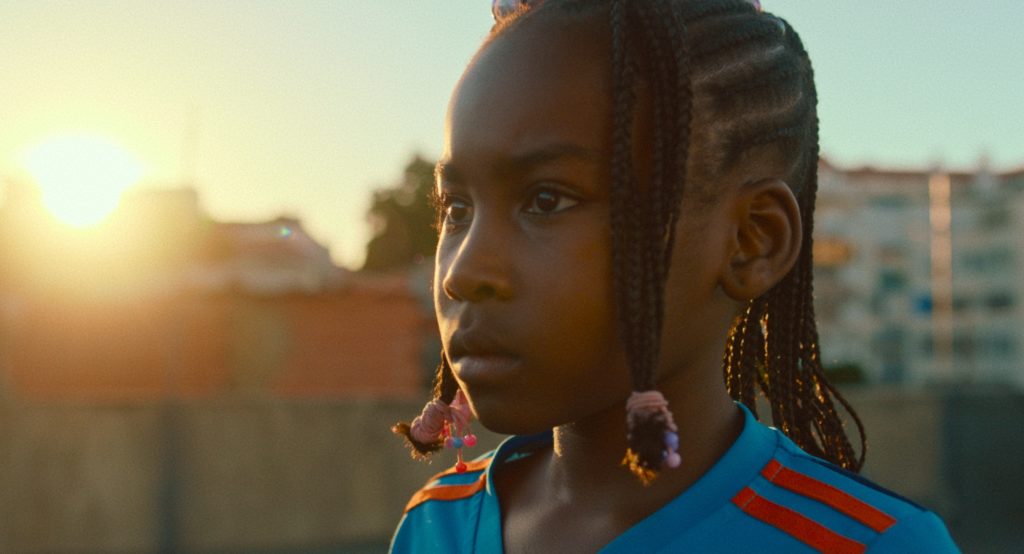The Glasgow Short Film Festival once again highlighted the Scottish cinematic landscape with its diverse and thought-provoking programme, showcasing a wide range of short films from both local and international filmmakers. Throughout the weekend, I was impressed by the meticulous curation, engaging thematic explorations, and vibrant community atmosphere that defined the Festival.

A film that particularly stood out to me was Film About directed by Cameron Nicoll. Set against the backdrop of creative self-doubt, Nicoll takes us on a journey through the inner workings of a filmmaker’s mind, as he revisits abandoned film ideas stored in his phone notes. The film’s narrative structure, which jumps back and forth between different projects, builds up tension as viewers eagerly await the outcome of each endeavour, rooting for its success. What emerges is a relatable and empathetic portrayal of the struggles inherent in the creative process, as Nicoll grapples with fears of inadequacy and the pursuit of parental approval. Nicoll’s masterful storytelling, infused with humour, transcends the specific projects depicted on screen, resonating with the universal experiences of artists and makers everywhere.
In contrast, 2720 (Basil da Cunha) offers a raw and immersive portrayal of life in a marginalised Lisbon neighbourhood. Following a police raid, a 7-year-old girl named Camila embarks on a journey to find her missing brother, while newly released ex-convict Jysone seeks redemption amidst the chaos. Through breathtaking cinematography and long takes that weave through the community’s streets and homes, da Cunha captures the resilience and solidarity of its residents. Moving through their homes, we are invited into the open door policy the community has for one another. The camera puts you right in the shoes of the characters. As the narrative unfolds, we witness the community’s unwavering support for one another, even as they grapple with the harsh realities of their surroundings.

Film About and 2720 may differ in their subject matter, cinematic styles, and narrative approaches, but both films resonate deeply with filmmakers and enthusiasts alike. While Film About presents short snippets of seemingly mundane subject matter, Cameron Nicoll’s storytelling prowess shines through. Despite its documentary-style cinematography, the film delivers a universal message about the struggles of the creative process, appealing to artists and makers everywhere. On the other hand, 2720 immerses viewers in a fictional narrative, with Basil da Cunha’s meticulous direction and deliberate camerawork creating a theatrical atmosphere. Despite these differences, both films serve as powerful inspirations for aspiring filmmakers, igniting a passion for storytelling and filmmaking. Whether through its relatable themes or immersive storytelling, each film leaves a lasting impression and exemplifies the transformative power of cinema.
The festival’s expert curation was evident in its selection of films like Wander to Wonder, which was included in multiple screenings, each offering a distinct interpretation of the narrative. This animated story follows three miniature actors navigating the aftermath of their creator’s death, blending elements of comedy and tragedy in equal measure. In the Bill Douglas Award screening, the film took on an earnest tone, encouraging introspection and reflection from the audience. In contrast, the non-competitive comedy screening saw viewers erupting with laughter, highlighting the power of context in shaping our perception of art.
Throughout the festival, themes of resilience, community and creative expression echoed across screenings and discussions, highlighting the power of film to provoke thought and inspire action. Through their work, filmmakers at GSFF shone a light on pressing social issues and inspired audiences to confront injustice with courage and creativity. The Glasgow Short Film Festival captivated audiences with its diverse lineup, offering a glimpse into the diversity of cinematic storytelling and standing out as a testament to artistic expression and community engagement, while offering an unforgettable experience that pushes boundaries and enriches the cultural landscape. With its thoughtful curation, compelling narratives, and inviting atmosphere, GSFF stands out as a must-attend event for cinephiles and filmmakers alike, promising to shape the future of cinema and inspire audiences for years to come.